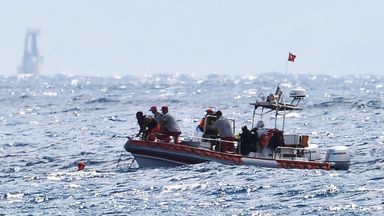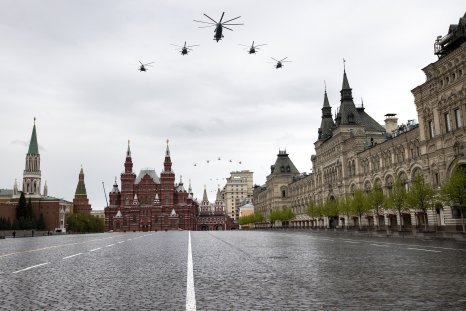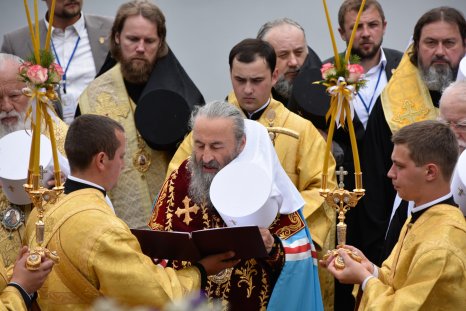Portuguese ships and aircraft spent nine days escorting Russian navy ships through the country's vast coastal waters this month.
Photographs released on Tuesday by the Portuguese navy showed its forces shadowing the Russian frigate class leader Neustrashimy and the Altay-class replenishment vessel Yelnya down its Atlantic coast from August 10 to 19. Both are both in service with the Baltic Fleet, headquartered in Russia's Kaliningrad stronghold.
The pictures also showed a third warship, the Russian Northern Fleet amphibious landing ship Ivan Gren, also the leading example of its class. The Portuguese navy said the vessel was headed south through Portugal's exclusive economic zone, or EEZ, from August 18 to 19.
Russia's Defense Ministry could not be reached for comment after hours.
Portugal is a founding member of the North Atlantic Alliance and regularly contributes military assets toward the monitoring of NATO's air and sea borders. Last month, one of its maritime patrol aircraft was tasked with following a Russian submarine in the Baltic Sea.
Russian ships not directly involved in the war in Ukraine continue to be deployed around the world including in waters near the United States. This is in part to signal to America and its Western allies that it can still project naval power, despite significant losses to Ukrainian strikes in the Black Sea.
The Portuguese navy said its ships watched the Neustrashimy and the Yelnya—among three Russian vessels to visit Cuba in late July—for over a week as they steamed toward the Mediterranean Sea. The Russian ships spent over 140 hours, nearly six days, in Portugal's exclusive economic waters off the continent and near the Azores, an autonomous archipelago of Portugal, its statement said.
The Ivan Gren, built in Kaliningrad and homeported in Severomorsk, inside the Arctic Circle, also sailed through Portugal's continental EEZ, it said.
The Portuguese navy said monitoring was done by the Viana do Castelo-class offshore patrol vessels NRP Sines and NRP Setúbal, as well as the Centauro-class patrol boats NRP Orion and NRP Sagitário.
Portugal surveilled the Russian ships to protect its borders, and as part of its commitment to NATO, according to the news release.
International maritime law allows coastal states like Portugal to claim an EEZ of up to 200 nautical miles [230 miles] from the shore, granting it a sovereign right to exploit the underwater resources there. However, it is not an extension of the territorial sea, which typically ends after 12 nautical miles [13.8 miles].
Portugal claims an EEZ from its mainland and two additional zones around the Azores and Madeira archipelagoes, which it governs as autonomous regions.
A separate statement on Sunday by the Portuguese air force confirmed that it had dispatched a P-3C Orion maritime patrol aircraft to photograph the Neustrashimy and the Yelnya two days earlier. Portugal's sea patrol planes are assigned to 601 Squadron at Beja air base in the south.
The Portuguese air force has monitored 25 Russian and two Chinese navy ships this year, its statement said. Portugal was among at least five NATO members that shadowed a pair of Chinese warships to and from Russia last month.
Disclaimer: The copyright of this article belongs to the original author. Reposting this article is solely for the purpose of information dissemination and does not constitute any investment advice. If there is any infringement, please contact us immediately. We will make corrections or deletions as necessary. Thank you.



